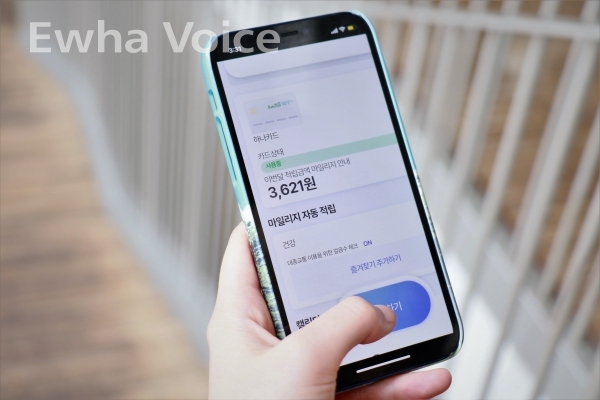
Transport cost has always been a fixed burden for regular commuters. The situation worsened after the government confirmed the inevitable rise in public transport cost this coming April. To ease the financial stress, an app has been introduced for commuters to save their fare fee to a maximum of 30 percent.
The app Altteul Transport Card or “frugal transportation app,” was released by the government to reward public transit users with cash-inreturn. It calculates the total mileage from the moment a user starts walking toward the public transportation until he or she reaches the final destination. To be more specific, the “go” button in the app is pressed before walking toward either the bus station or the subway. After using any mode of public transport and reaching the final destination, the “arrive” button is pressed to calculate the miles. The subtotal of the monthly mileage will then be calculated by comparing them with the following transit card scanned in respective places.
The Metropolitan Transport Commission in the Ministry of Land, Infrastructure and Transport first piloted the Altteul Transport Card in 2019. At first, it was used in only 11 regions including five Gwangyeoksi areas – the metropolitan city – and six basic local government, which are all notorious for traffic jams. The government hoped the app would encourage people to choose public rides over personal vehicles and ease traffic congestion. After receiving feedback from the users, the app and its card were soon revised and extended to other regions including Jung District, Seoul; Guru District, Seoul; and Chungnam, Cheonan.
Professor Jin Jangwon from the Graduate School of Transportation at Korea National University of Transportation explained that the success of this plan was mainly due to the monetary benefit people receive. Another attractive factor was that the plan interconnected with welfare with more mileage opportunities given to those in low-income and youth, with at most 50 percent reduction and 38 percent reduction respectively.
A survey conducted by Ewha Voice from March 13 to March 18 showed that 32.9 percent of 75 Ewha students, which is the highest percentage, spent between 70,000 to 100,000 won on average for transit fees every month. Out of these 75 users, 31.6 percent had their ride fare reduced between 5,000 to 10,000 won and 30.3 percent had theirs reduced between 10,000 to 15,000 won.
Respondents answered that the biggest merit of this new app was the financial advantage they received. However, over 49 percent of the students commented on the inconvenience they experienced within the need to press the “go” and “arrive” button in the app. Others criticized the instability of the User Interface (UI) of the app, especially on its slow loading time.
Professor Jin suggested ways for short-term travelers in Korea to use the app. Since visitors are not able to register for the app and its card, a threeday or seven-day pass can be provided to offer incentives to commuters.
“In the case of Paris, London, Milano, Barcelona, a lot of European countries give discounts on one-dayor-two passes for short-term tourists,” he said. “A similar policy can be made for travelers in Korea.”
Meanwhile, many foreigners residing in Korea expressed their discomfort in accessing the app. Amad Abogmos, a Jordanian man in his 30s and a restaurant owner in Yongsan, has lived in Korea for 16 years. Although he usually travels by his car, he recalled when he often traveled using public transport in Korea. Abogmos agreed that the app surely sounded beneficial, but hoped that it would be advertised more to non-Koreans living in Korea.
In fact, non-Koreans go through a different process where they have to visit the bank in person for registration of the card and submit an image of their foreign residence certificate to create an account in the app.
Lailim Makhmud, a freshman from Kazakhstan majoring in Computer Science & Engineering at Ewha, expressed that the process sounded complicated. Instead, she believes it would be much more convenient if they just requested a telephone number, since it was already connected to their residence number. She also pointed out that it might be easier for non-Koreans to just keep using their regular pass instead of putting in the effort to visit the bank for a new card.
“I think I would still give it a try because Shinhan Bank is really close to where I live so it would not be hard for me to get a new card in my personal situation,” Makhmud remarked. “As for the registration number. I still do not have it, so I will have to wait a few months until I get it.”
Meanwhile, the government has announced the release of an upgrade version called “Altteul Transport Card Plus” for more benefits this coming July.

